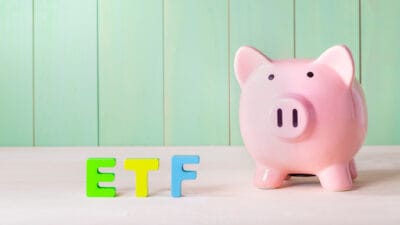Investors in the iShares S&P 500 ETF (ASX: IVV) will no doubt be rejoicing today. This exchange-traded fund (ETF) has just hit a new all-time high. Yep, IV units closed at $51.68 yesterday, but opened at $51.70 this morning before pushing up to $51.74 each – this index fund's new all-time high.
Of course, today's new high watermark is just the latest in a series of fresh new highs for the iShares S&P 500 ETF.
This fund has been on an extraordinary run in recent months. IVV units are now up more than 11% in just 2024 so far, as well as up a whopping 30.7% over the past 12 months. Investors have also enjoyed a gain of over 95.5% over the past five years.
Like most of the recent IVV highs, today's fresh top can probably be attributed to a recent surge in some of the US's top tech stocks. Last night alone saw Tesla gain 3.87%. And NVIDIA stock has risen a whopping 17% since only Wednesday (US time) last week. If we add some recent weakness in the Australian dollar against the US dollar, we have a potent recipe for an iShares S&P 500 at record highs.
Index funds like the iShares S&P 500 ETF are particularly popular for investors who like to passively invest by following a dollar-cost averaging strategy.
But many investors might be wondering whether they should keep buying this popular ASX ETF. After all, gains like the ones we've seen with IVV units are quite uncommon (11% in three months for example). And many investors don't like buying assets when they're being priced at all-time highs.
So what's the right way to invest here?
Should investors stop buying the iShares S&P 500 ETF at record highs?
Well, the wisest thing for investors, particularly those passive investors who've committed to buying IVV units at periodic intervals, is arguably to continue their strategy. Making a decision to stop buying this ETF because it is at a certain price is in effect, engaging in market timing. And that's something that passive investors are trying to avoid in the first place.
The reality is that none of us knows what an index fund like IVV will do next. Today's all-time high might prove to be the highest it goes in 2024. If that's the case, then you'll look like a genius if you stop buying today.
But there's just as a good chance that today's new high will be supplanted by another record tomorrow, next week or next month. If that turns out to be the case, you'll look like a fool for halting your buys.
As such, true passive investors should continue to stick to their strategy. As they say, 'time in the market is better than timing the market'.
But don't take it from me. Take it from legendary investor Warren Buffett. Here's some of what he told investors in his 2014 letter to the shareholders of his company Berkshire Hathaway:
Investors, of course, can, by their own behavior, make stock ownership highly risky. And many do. Active trading, attempts to 'time' market movements, inadequate diversification, the payment of high and unnecessary fees to managers and advisors, and the use of borrowed money can destroy the decent returns that a life-long owner of equities would otherwise enjoy.
The commission of the investment sins listed above is not limited to 'the little guy.' Huge institutional investors, viewed as a group, have long underperformed the unsophisticated index-fund investor who simply sits tight for decades.
In 2017, he added this advice:
Consistently buy an S&P 500 low-cost index fund… Keep buying it through thick and thin, and especially through thin.
Whilst we are clearly in a 'thick' period right now, Buffett's advice is clear.








